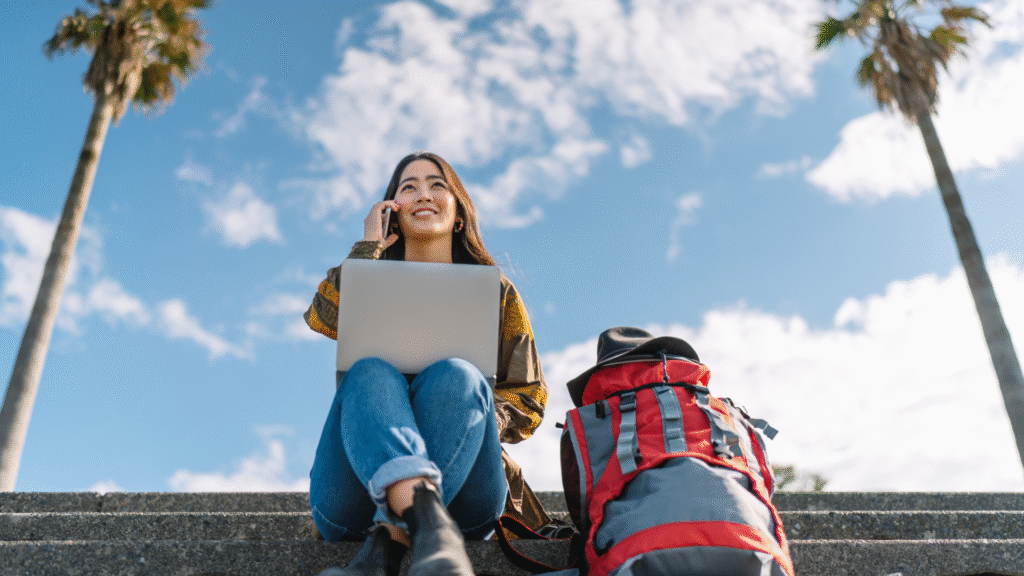

Enhancing traveller mobility through technology and innovation has become a key focus in the travel industry. Advances in technology have revolutionised how people plan, book, and experience their travels. Here are some means by which technology and innovation are enhancing traveller mobility:
- Mobile Applications: Travel-related mobile applications have transformed the way travellers access information and services. Apps like Google Maps provide real-time navigation and transportation options, helping travellers navigate unfamiliar cities. Other apps offer features like flight and hotel bookings, itinerary management, language translation, and local recommendations, enhancing convenience and accessibility.
- Digital Travel Assistants: Virtual assistants, such as chatbots and voice-enabled devices, provide instant customer support and personalised recommendations. These assistants can assist travellers with booking flights, hotels, and rental cars, as well as answering queries about destinations, weather, and local attractions. They streamline the travel planning process and enhance the overall travel experience.
- Smart Luggage and Tracking: Innovative luggage equipped with GPS tracking and smart locks has made travel more secure and efficient. Travellers can track their bags in real time, receive notifications about their location, and remotely lock or unlock their luggage. Some smart luggage even includes built-in phone chargers and digital scales, eliminating the need for additional accessories.
- Biometrics and Facial Recognition: Biometric technology, such as facial recognition, has simplified airport check-in and security processes. Travellers can now verify their identities quickly, reducing waiting times and enhancing security. Biometrics also enable seamless border control, allowing travellers to pass through immigration checkpoints effortlessly.
- Internet of Things (IoT): The IoT has enabled the development of smart airports and smart hotels. Connected devices and sensors facilitate smoother travel experiences. For example, airports equipped with IoT technology can provide real-time updates on flight delays, gate changes, and baggage tracking. Smart hotels offer automated check-ins, room customisations, and personalised services through IoT-enabled devices.
- Virtual and Augmented Reality: Virtual reality (VR) and augmented reality (AR) technologies are transforming the way travellers explore destinations. Virtual tours allow travellers to experience a location before they visit, helping them make informed decisions. AR can provide real-time information about points of interest, historical sites, and directions, enhancing the traveller’s understanding and navigation of a new place.
- Sharing Economy Platforms: Platforms like Airbnb and Uber have revolutionised accommodation and transportation options for travellers. These platforms connect travellers with local hosts or drivers, offering affordable and convenient alternatives to traditional services. Sharing economy platforms have increased flexibility and choice for travellers, enhancing mobility in different destinations.
- Sustainable Mobility Solutions: Technology and innovation are also driving sustainable mobility options. Electric vehicles, ride-sharing platforms, and bike-sharing services reduce carbon emissions and promote eco-friendly transportation choices. Travellers can access these options through mobile apps, contributing to a greener and more sustainable travel experience.
In summary, technology and innovation have greatly enhanced traveller mobility. From mobile applications and digital assistants to smart luggage and biometrics, advancements provide convenience, security, and personalisation throughout the travel journey. Additionally, IoT, VR/AR, sharing economy platforms, and sustainable mobility solutions contribute to a seamless and sustainable travel experience for globetrotters.
The upcoming Eighteenth Symposium on the International Civil Aviation Organization (ICAO) Traveller Identification Programme (TRIP 2023) will occur from 12-14 September 2023 at the ICAO Headquarters in Montréal, Canada. This year’s theme is ‘Enhancing Traveller Mobility through Technology and Innovation’.
The TRIP Symposium is a highly anticipated event that allows experts and practitioners to exchange information on all aspects of traveller identification management. The Symposium will focus on promoting the global regulatory framework established by the provisions of Annex 9 – Facilitation to the Convention on International Civil Aviation – and linking it to the new technology tools available on the market. The Symposium will provide insight into best practices, specifications, and technical mechanisms to apply and use biometrics successfully.
